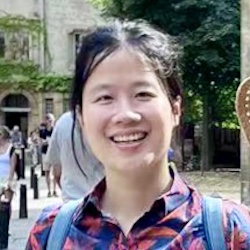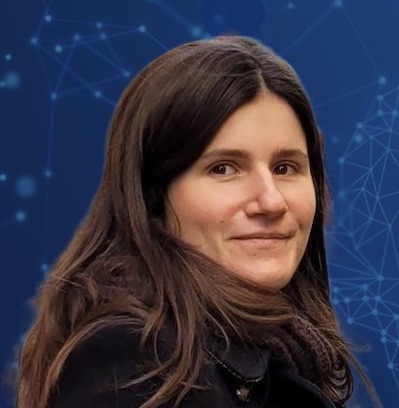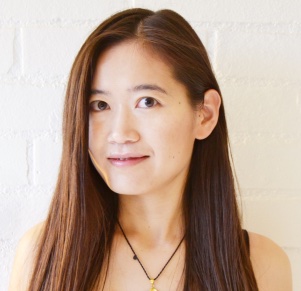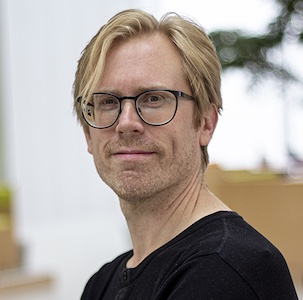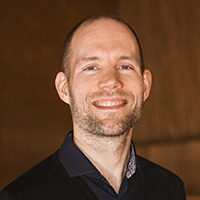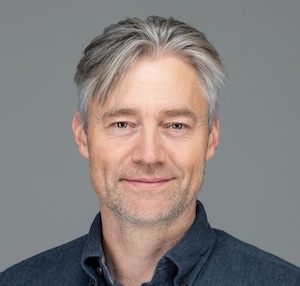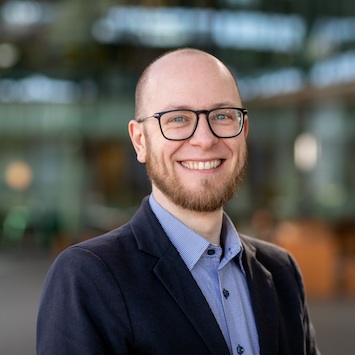About
The summer school is targeted toward (PhD) students working with data science broadly, and for whom generative modelling potentially plays a part in their (PhD) projects. In particular, the program is designed to accommodate both students doing methodological data science research (e.g., machine learning, statistics and AI) and students doing applied data science research (e.g., bioinformatics, computational physics, computational chemistry and computational social science). Furthermore, the course will also be open to postdocs and more senior researchers who want to work with deep generative models, as well as people from the industry as continual training in data science. The school will be open both to Danish and international participants.
Participants are expected to abide by the DDSA Code of Conduct.
Lecturers
The first three days will be taught by the main lectures, while there will be invited lectures giving tutorials the last two days.
Invited lecturers
Main lectures
Program
| Monday (Jun 26) | Tuesday (Jun 27) | Wednesday (Jun 28) | Thursday (Jun 29) | Friday (Jun 30) | |||||
|---|---|---|---|---|---|---|---|---|---|
Day 1 Lectures & Hands-on |
Day 2 Lectures & Hands-on |
Day 3 Lectures & Poster session |
Day 4 Invited Lectures & Dinner |
Day 5 Invited Lectures |
|||||
| 9:00-9:15 | Opening remarks Registration from 8:45 Jes Frellsen |
||||||||
| 9:15-10:30 | Introduction to generative modeling Pierre-Alexandre Mattei |
9:30-10:30 | Autoregressive models (Introduction) Jakub Tomczak |
9:30-10:30 | Hybrid modeling Jakub Tomczak |
09:00-10:30 | Ole Winther LLMs for medical data Wouter Boomsma Generative models of protein sequences |
09:00-10:45 | Robin Rombach Generative modeling in latent space |
| 11:00-12:00 | From Mixture Models to Probabilistic circuits Jakub Tomczak |
11:00-12:00 | Autoregressive models (Transformers) Jakub Tomczak |
11:00-12:00 | Energy-based models Jes Frellsen |
11:00-12:45 | Yingzhen Li Sequential generative models |
11:15-13:00 | Will Grathwohl Methods and application for energy-based models |
| 12:00-13:30 | Lunch at the Geocenter |
12:00-13:30 | Lunch at the Biocenter |
12:00-13:30 | Lunch at the Biocenter |
12:45-14:00 | Lunch at the Geocenter |
13:00-14:30 | Lunch at the Geocenter |
| 13:30-14:30 | Probabilistic PCA Pierre-Alexandre Mattei |
13:30-15:00 | Flow-based models Jes Frellsen |
13:30-15:00 | Diffusion-based generative models Jakub Tomczak |
14:00-15:45 | Søren Hauberg Identifiability and invariance using latent geometry |
14:30-16:15 | Cheng Zhang Causal inference |
| 14:45-16:15 | Deep latent variable models Jes Frellsen |
15:15-16:00 | Flow-based models in VAEs Jes Frellsen |
15:15-16:00 | Generative Adversarial Networks Pierre-Alexandre Mattei |
16:15-18:00 | Robert Peharz Probabilistic circuits |
16:15-16.30 | Closing Jes Frellsen |
| 16:30-18:00 | Hands-on session VAE |
16:30-18:00 | Hands-on session ARM/Flows |
17:00-19:00 | Poster session With tapas at the Pioneer Centre for AI (directions) |
19:00-21:00 | Banquet dinner at restaurant Madklubben København (directions) |
||
Venue
The Summer School is hosted by the Pioneer Centre for Artificial Intelligence in the center of Copenhagen, Denmark. The lectures will take place in two buildings:
- On Monday, Thursday and Friday, we will meet in the Auditorium of the Natural History Museum of Denmark (Øster Voldgade 5A, directions).
- On Tuesday and Wednesday, we will meet in Auditorium 1 of the H.C. Ørsted Institute (directions).
- The poster session on Wednesday takes place at the Pioneer Centre for AI (Øster Voldgade 3, directions)
The Banquet dinner will be held at restaurant Madklubben København (directions), which is about 12 minutes on foot from the Natural History Museum of Denmark.
Course
GeMSS corresponds to DTU course number 02981 and will be awarded 5 ECTS.
In order to obtain an official certificate, a participant must fulfill the following components (all components will be graded pass/fail):
- attending the lectures;
- accomplishing both assignments;
- presenting a poster.
All accepted students will receive instructions for registering for the course.
NOTE: All non-student participants will need to pay an increased registration fee to obtain the certificate of the course accomplishment.
Course material
Most of the material presented during the first three days of the summer school is based on the book Deep Generative Modeling (2022) by Jakub Tomczak. We highly suggest start reading the relevant chapters before the summer school. Moreover, in the Colab notebooks, we provide the recommended reading for each assignment.
Registration
Application
Please prepare a single PDF file that contains the following information in the given order:
- one A4 page describing you research, prefeable in a poster-format;
- a one page CV;
- students only: a one-page letter of confirmation that you are a student from your supervisor;
- in case of applying for a registration fee waiver: a one-page motivation why it is crucial for you to receive the registration fee waiver.
Please upload this single file to the following registration system.
An example of an application could be found here: [PDF].
Application deadline: April 14, 2023 (EOD).
Selection Process
We aim for selecting a group of about 100 participants. The selection process will be based on the submitted material and will be executed by the organisers. We will look into your background (e.g., expertise, affiliation) and your experience. We expect from the participants the following: a good familiarity with Python and PyTorch, and a basic knowledge of calculus, linear algebra, probability theory and statistics.
Registration Fee
- Students (MS., PhD): 1850DKK (~250EUR)
- Others (without a certificate): 2000DKK (~270EUR)
- Others (with a certificate): 10250DKK (~1375EUR)
The registration fee includes all lectures, coffee breaks, lunches and the banquet.
Fee waiver: We plan to waive the registration fee up to 10 participants, aimed primarily for applicants who cannot (fully) afford paying for participating in the summer school. Please note that we will not cover your traveling and accomodation costs.
Organisation
The summer school is jointly organised by:
- Jakub M. Tomczak, Eindhoven University of Technology
- Pierre-Alexandre Mattei, INRIA Sophia-Antipolis
- Jes Frellsen, Technical University of Denmark
The organisation team (beside the lecturers):
- Federico Bergamin, Technical University of Denmark
- Paul Jeha, Technical University of Denmark
- Hugo Senetaire, Technical University of Denmark
- Anshuk Uppal, Technical University of Denmark
- Sharvaree Vadgama, University of Amsterdam
Contact
For matters regarding the workshop, you can contact .
Funding
This summer school is funded through the Danish Data Science Academy, the Pioneer Centre for AI (P1) and the Center for Basic Machine Learning Research in Life Science .
